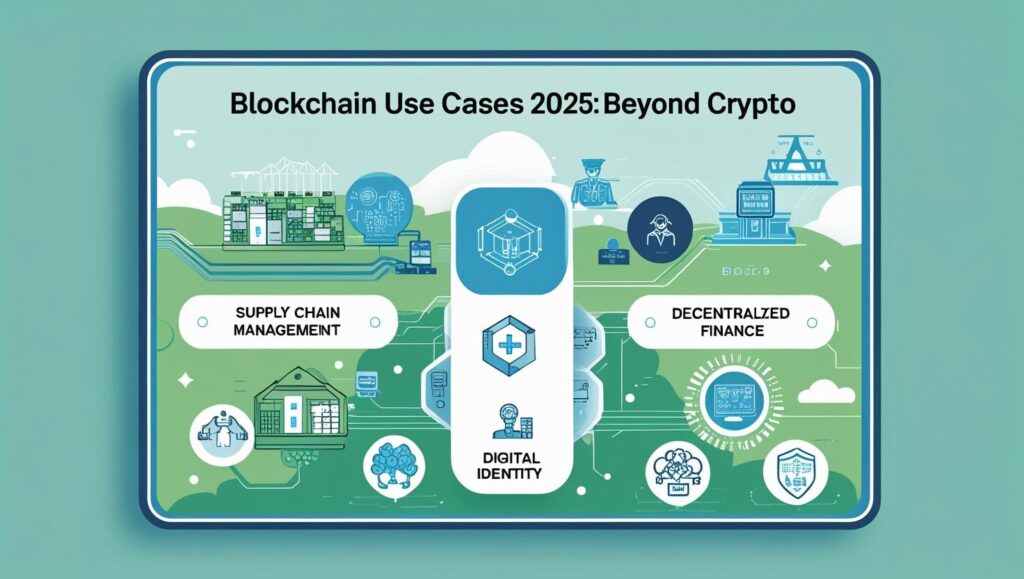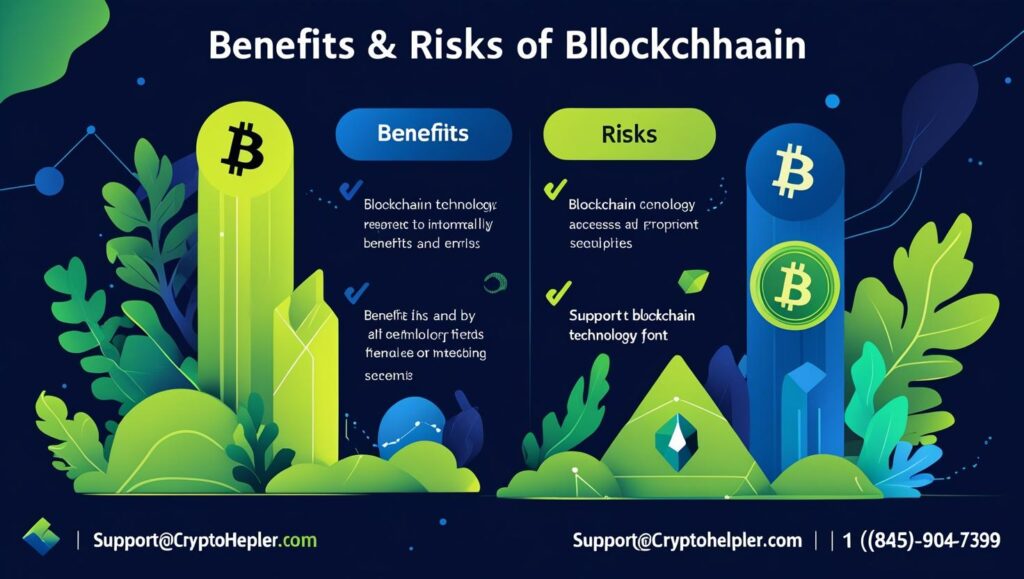What Is Blockchain? The Ultimate 2025 Guide to How Blockchain Technology Works 🚀
Ever wondered how does blockchain technology work and why it’s transforming industries in the USA and beyond? Whether you’re a curious beginner, a business owner exploring how to use blockchain in business USA, or just someone trying to understand public vs private blockchain, this guide breaks it all down—no jargon, no confusion.

- What blockchain really is (and what it’s not)
- Types of blockchain technology you should care about
- Real blockchain use cases 2025 driving innovation
- Key blockchain benefits and risks
- How businesses in the USA can adopt blockchain successfully
1. What Is Blockchain? (Explained Simply)
Imagine a digital ledger—like a shared Google Sheet—that everyone can see but no one can secretly edit. That’s blockchain technology.
At its core:
- Data is stored in blocks.
- Blocks are linked (or chained) together in sequence.
- Once added, information cannot be altered without network approval.
This makes blockchain:
- Decentralized – No single company “owns” it.
- Transparent – Anyone can verify transactions.
- Secure – Cryptography keeps hackers at bay.
Want to dive deeper into wallets? Check out:
👉 [Blockchain Wallet by Blockchain.com: A Complete Guide]
2. How Does Blockchain Technology Work?
Let’s break it into three easy steps:
- Transaction Creation – You initiate a transaction (e.g., sending crypto).
- Validation – A network of computers (nodes) verifies it using algorithms.
- Block Addition – The verified transaction joins a block, which is permanently chained to previous blocks.
Think of it as crowdsourced bookkeeping—but far more secure.
3. Types of Blockchain Technology (And Which One You Need) 🔍
Not all blockchains are created equal. Here are the four main types:
| Type | Who Can Access? | Use Case |
|---|---|---|
| Public Blockchain | Anyone | Cryptocurrencies like Bitcoin & Ethereum |
| Private Blockchain | Authorized users only | Enterprise solutions (e.g., supply chain) |
| Consortium Blockchain | Selected organizations | Banking & finance collaborations |
| Hybrid Blockchain | Mix of both | Healthcare & government projects |
Want to know which is better? Check our detailed guide:
👉 [Public vs Private Blockchain: Which One Should You Use?]
4. Blockchain Use Cases 2025: Beyond Crypto
In 2025, blockchain is not just about Bitcoin. Key industries leveraging it:
- Finance & Payments – Faster, cheaper international transactions.
- Supply Chain – Track products from factory to shelf.
- Healthcare – Protect patient data and ensure privacy by securing medical records.
- Real Estate – Use smart contracts to streamline and automate property transactions.
- Voting Systems – Tamper-proof digital elections.
For businesses: 👉 [How to Use Blockchain in Business USA]

5. Blockchain Benefits and Risks (Know Both!) ⚠️
Benefits:
- Transparency & Trust
- Reduced Costs (no middlemen)
- Security & Immutability
Risks:
- Regulatory uncertainty (especially in the USA)
- High energy consumption (for public blockchains)
- Scalability challenges
Want to protect your investments? Read:
👉 Legit Crypto Investments: The Definitive 2025 Guide to Safe and Profitable Crypto Investing

6. Public vs Private Blockchain (Quick Comparison)
- Public Blockchain – Fully decentralized, ideal for crypto and open networks.
- Private Blockchain – Controlled by a single entity, better for enterprises.
Which should you choose?
- Startups often prefer public for flexibility.
- Established businesses lean toward private for compliance.
7. How to Use Blockchain in Business (USA 2025 Guide) 🇺🇸
Here’s how U.S. companies can integrate blockchain:
- Identify the Problem – Supply chain, payments, or data management?
- Pick the Right Blockchain Type – Public vs private vs hybrid.
- Partner with Experts – Developers and legal advisors.
- Stay Compliant – Follow SEC, FinCEN, and state-level regulations.
Need more guidance? 👉 [Crypto Helpdesk: Instant Support for Transactions & Blockchain Issues]
8. The Future of Blockchain (What’s Next?)
Expect:
- Mass adoption in banking, healthcare, and logistics.
- Tighter regulations shaping blockchain in the USA.
- Integration with AI and IoT for smarter systems.
9. FAQs About Blockchain (For Beginners)
Q1: Is blockchain only for crypto?
No! Blockchain powers NFTs, supply chains, and even voting systems.
Q2: Can blockchain be hacked?
Highly unlikely—unless someone controls 51% of the network.
Q3: How much does it cost to implement blockchain in a business?
It varies: small solutions start around $5K; enterprise setups can exceed $200K.
10. Final Thoughts: Master Blockchain in 2025
Understanding how does blockchain technology work isn’t just a tech hobby anymore—it’s a necessity. With the right knowledge of types of blockchain technology, awareness of blockchain benefits and risks, and practical steps on how to use blockchain in business USA, you can stay ahead of the curve.

Ready to go deeper? Explore these guides next:
- [Blockchain Wallet by Blockchain.com: A Complete Guide]
- [How to Contact Blockchain Customer Service and Support (2025 Ultimate Guide)]
- [Legit Crypto Investments: The Ultimate Crypto Investment Guide 2025]
